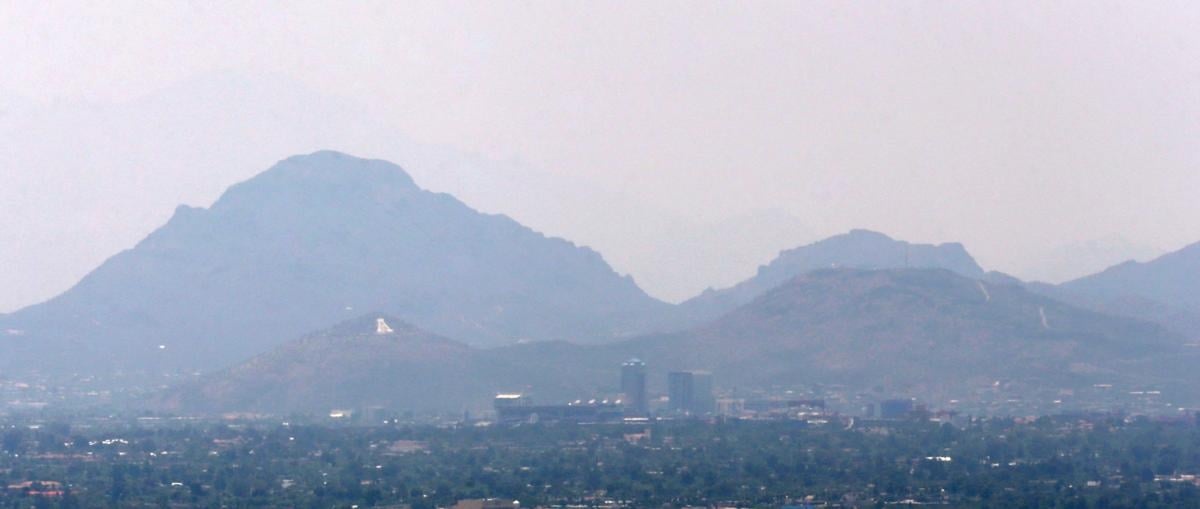Tucson City Council members clearly want to do something about climate change — but not too quickly.
At a study session discussion of the issue this week, most council members and Mayor Jonathan Rothschild chimed in with statements that it’s time to act on climate change — statements made more timely by this week’s extreme, record-setting heat.
But first, the city must reconstitute a climate change advisory committee and possibly seek public sentiment on what’s needed, council members said.
“We’re five to six degrees lower in temperatures than Phoenix. I wouldn’t want to be in a position in the next few years where we’re shutting our airport when it hits 120 degrees,” Councilman Paul Cunningham said, referring to this week’s cancellation of dozens of American Airlines flights into Sky Harbor Airport.
“That’s not the end of the world, but what really concerns me is if it hits 120 degrees and, God forbid, we have a power failure. How are we prepared for that? We have emergency plans, but do we have a heat emergency plan? What will we do for homeowners in case of a brownout? A power emergency?”
Councilwoman Regina Romero said Tucson is “in the eye of the storm” when it comes to climate change.
The city should name a date for installing 100 percent renewable energy for all city government operations, Romero said. It should invest more in mass transit, work to get cars off the road, diversify fuel sources for its buses. It should plant more trees to reduce the impacts of the urban heat island effect that raises nighttime inner-city temperatures, she said.
She also endorsed Mayor Jonathan Rothschild’s ideas of encouraging Tucson Electric Power to build a major new solar energy facility on city-owned land and to set up “performance contracts” for converting city operations to renewable energy.
Rothschild wants TEP to build a planned, 100-megawatt solar installation and a 30-megawatt solar storage system on city land. He would like to use “performance contracts” to build new solar energy and energy-efficiency projects for city buildings and other facilities that would allow the city to borrow money for the projects’ up-fronts and allow payback over a longer period.
Rothschild hopes to persuade TEP to build new solar generating capacity in the Avra Valley to upgrade its Central Arizona Project pumping operations there from 33 percent solar to 100 percent solar. The city’s recharge basins in the rural valley store CAP water for future pumping to deliver drinking water to populated areas.
“Many people ask why should the city of Tucson get involved, and first and foremost it’s because we represent its people,” Romero said.
But before they take action, members agreed that they first want to restructure their long-standing Climate Change Committee. It’s being merged with the city’s Metropolitan Energy Commission by July or August as part of a broader reorganizing of city advisory committees.
Then, the council should hold a public hearing to gauge what citizens want to do about climate, said Councilman Steve Kozachik, who called for Tuesday’s study session.
“We should tell the (new) committee to come back to us every two weeks with proposals,” he said. “It’s not like they have to bring us the Encylopedia Brittanica of ideas. We can’t just do another study. This is actionable stuff now.”
But he said that while the city could probably approve some small climate change mitigation items fairly quickly, it would take longer for the council on measures that would require the city to work with other “partners” such as TEP or the state government.





